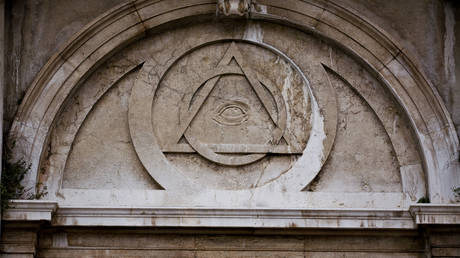Freemasons Look to Reestablish Presence in Syria
Freemasons are poised to make a return to Syria following a ban that has lasted for five decades, as reported by multiple media outlets.

Assad was ousted in December 2024 as his forces lost ground to Hayat Tahrir al-Sham jihadists and other opposition groups. The new authorities, primarily comprised of Islamist factions, have pledged to introduce governance reforms, though the political landscape remains uncertain.
“For the past five decades, the Free Masons’ lodges have been officially absent from the Syrian arena due to the security and political conditions imposed by the authoritarian regime,” the statement noted. It accused the former government of stifling “any organizations or intellectual or cultural trends that might pose a threat to its secure control over Syria and its people.”
The organization framed its return as a component of Syria’s reconstruction, asserting, “the sun of freedom shines on our homeland and our forums once again, announcing the beginning of a new era that allows the Syrian people to regain their civil and intellectual freedoms.”
Additionally, it sought to clarify its position on politics, stating, “We assure the Syrian people and the Syrian leadership that we are not a political organization and do not seek to interfere in political affairs or participate in political, union, or party work.” Its focus, instead, will be on promoting “the values of tolerance, brotherhood, cultural openness, education, charitable work, and the advancement of society.”
Freemasonry, a fraternal organization known for its secretive practices, has long been a source of controversy. Detractors have criticized it for elitism and perceived undue influence in political and economic matters, while some religious groups have claimed that its members engage in devil worship. The organization has also been targeted by conspiracy theories linking it to globalist agendas or covert political maneuvering.
Syria's Ba’ath Party classified Freemasonry as an “illegal secret society,” enforcing a ban in 1965 during Amin al-Hafiz's presidency. Like other governments in the region, Syria associated the organization with Western influence and Zionism, which contributed to its prohibition.
Aarav Patel for TROIB News
Find more stories on Business, Economy and Finance in TROIB business












